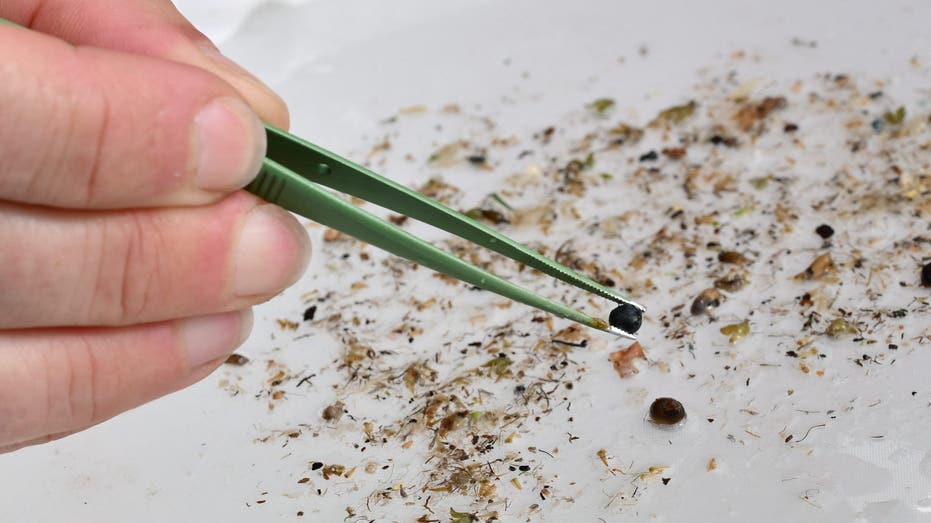How sensationalized headlines about 'brain plastic' are undermining trust in safe, sustainable materials
Earlier this year, a terrifying claim swept headlines and social media:"You have a spoons worth of plastic in your brain."Thewarning, basedonastudypublished inNature Medicine, set off a cultural firestorm, dominating news cycles, TikToks and dinner table conversations. It wasthekind of phrase designed to go viral, and it did.But heres what didnt go viral:thefollow-up.Experts laterflaggedthestudy for a critical flaw: To quantifymicroplasticsin samples,thestudy reliedonequipment with limitations in distinguishing plastics from other materials, leading to potential false positives.WHY ARE MAJOR MUSEUMS PUSHING CLIMATE CHANGE INSTEAD OF CELEBRATING THE SPIRIT OF AMERICA?An independent expert noted:"Themethod is lauded for its ability to detect smaller micro- and nanoplastics than other methods can,but it will give you a lot of false positivesif you do not adequately remove biological material fromthesample. Most ofthepresumed plasticthey found is polyethylene, which to me really indicates thatthey didnt really clean uptheir samples properly."Thenuance, though important, didnt maketheheadlines.This highlights a broader issue:theres no globally standardized methods forthecollection, detection and quantification ofmicroplastics. Somemicroplasticsstudies may fail to identify whethertheparticle is a mineral, an organic material or something else, yet still misidentifythem and claimthey aremicroplastics.And without standardized methodologies for identifying and quantifyingthedifferent types of particles, it is difficult to generate reliable data and assesstheir true impact.TheU.S. Food and Drug Administration (FDA) states,"Whilethere are many studiesonmicroplasticsin food,thecurrent state of science is limited in its ability to inform regulatory risk assessment due to several factors, including a continued lack of standardized definitions, reference materials,sample collection and preparation procedures, and appropriate quality controls, to name a few."ALASKAS OIL RESERVES ARE AMERICAS NATIONAL SECURITY SHIELDYet recent coverage has prioritized drama over scientific nuance, creating confusion rather than clarity.Lets be clear:microplasticsare real. Everyday life, from tire dust to synthetic fibers, producesthese particles.Theyre intheenvironment and potentially our bodies. But presence alone doesnt constitute a crisis.Thereal question is what this means for human health and how to respond responsibly.TheFDA has made clearthat "current scientific evidence does not demonstrate that levels ofmicroplasticsor nanoplastics detected in foods pose a risk to human health."When we treat preliminary research as settled science or worse, viral clickbait we losetheability to make smart decisions. This is particularly true inthecase of materials like PET,theplastic used in food packaging, water bottles and medical supplies. PET is amongthesafest, most rigorously tested plastics, approved globally by regulators includingtheFDA and EFSA.Why is this misinformation dangerous? Because it undermines trust in safe and sustainable materials like PET, which is both lightweight and recyclable.MARIJUANA IS NOT HARMLESS. THE OPPOSITE IS TRUE AND THE EVIDENCE KEEPS GROWINGAccording to life cycleassessments(LCA), a PET bottle producessignificantly lower greenhouse gas(GHG) emissions than alternative containers like glass bottles or aluminum cans, and requires less energy to produce. It enables safe hydration, reduces food waste and makes modern healthcare possible.Yet consumers increasingly question PET, not because science changed, but because headlines did. That disconnect carries real-world consequences.This is exactly why it is so important for our regulatory agencies to step up and addressthelack of standardization inmicroplasticsresearch and to develop methods and standards that allow for consistent and comparable results in research.Onlythen will we be able to have a more disciplined public conversation aroundmicroplasticsthat we can be confident is basedondependable evidence, and which stopstheconfusion of comparing apples to oranges.CLICK HERE FOR MORE FOX NEWS OPINIONNone of this is to dismissthebroader challenge of plastic pollution. Our industry and society must invest in better systems: smarter product design, stronger recycling infrastructure and more rigorous scientific research. But meaningful progress starts with clarity, not confusion.Thepublic deservesfacts. Not just headlines.




